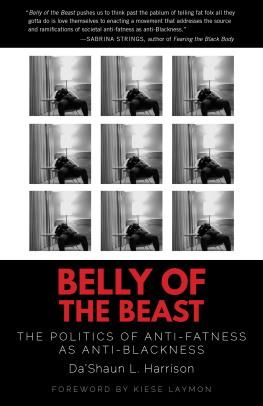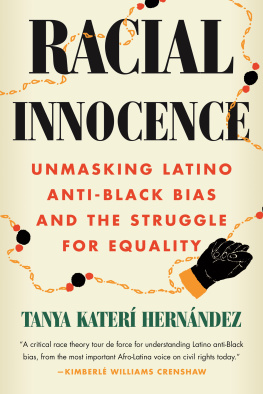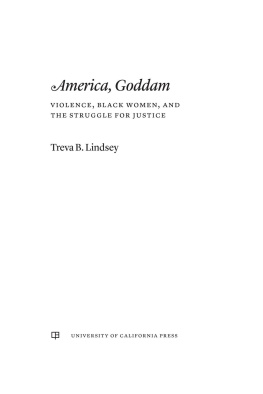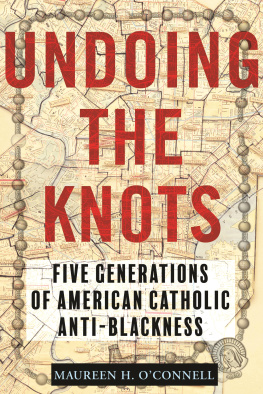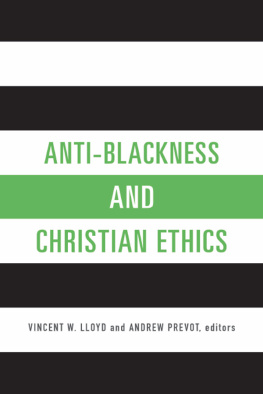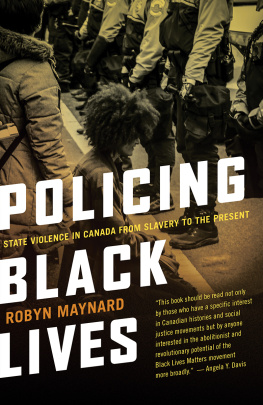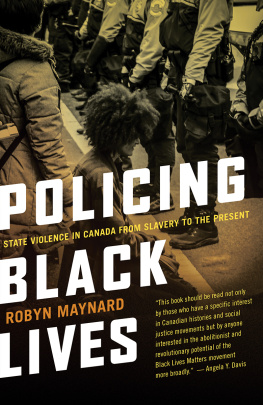
Praise for Belly of the Beast
This modern classic relishes in collapsing conventional and clichd orthodoxies. As formative as Harrisons proclamations are, it is Harrisons pacing that gives the book the lingering feeling of the most sensual whisper.
Kiese Laymon, author of Heavy: An American Memoir
Belly of the Beast is written with poise and lucidity. It pushes us to think past the pablum of telling fat folx all they gotta do is love themselves to enacting a movement that addresses the source and ramifications of societal anti-fatness as anti-Blackness. Harrison forces us not to look away, reminding us that all too often health and desire are used to annul Blackness. In a post bo-po world, desire and the sheer right to life can be rooted in something other than all the things named non-Black.
Sabrina Strings, author of Fearing the Black Body: The Racial Origins of Fat Phobia
DaShaun Harrison is an insightful visionary, world-builder, and ingenious writer who brings us into deeper understandings and frameworks of the intersections of anti-Blackness and anti-fatness. Belly of the Beast brings us closer to ourselves because it brings us closer to the truththat anti-Blackness is the foundation to how violence shapes our relationships to our bodies and each other. Harrison not only intervenes in the terror of white supremacist paradigms but develops the tools to imagine and build a new world. Belly of the Beast eats, and it leaves no crumbs.
Hunter Shackelford, author of You Might Die for This
I am continually blown away by DaShauns ability as a writer to wrestle so deeply and expertly with questions many of us would never even think to askwhether they be about our world, our politics, our selves, or our bodies. Every page challenges us to expand our imagination and reconstruct the ways we think, talk, and theorize about fatness, Blackness, gender, health, desire, abolition, and more. Belly of the Beast is a gift and a groundbreaker.
Sherronda J. Brown, editor-in-chief of Wear Your Voice magazine
Copyright 2021 by DaShaun L. Harrison. All rights reserved. No portion of this book, except for brief review, may be reproduced, stored in a retrieval system, or transmitted in any form or by any meanselectronic, mechanical, photocopying, recording, or otherwisewithout the written permission of the publisher. For information contact North Atlantic Books.
Published by
North Atlantic Books
Berkeley, California
Cover photo by DaShaun L. Harrison
Cover design by Sherronda J. Brown
Book design by Happenstance Type-O-Rama
Printed in Canada
Belly of the Beast: The Politics of Anti-Fatness as Anti-Blackness is sponsored and published by North Atlantic Books, an educational nonprofit based in Berkeley, California, that collaborates with partners to develop cross-cultural perspectives, nurture holistic views of art, science, the humanities, and healing, and seed personal and global transformation by publishing work on the relationship of body, spirit, and nature.
North Atlantic Books publications are distributed to the US trade and internationally by Penguin Random House Publishers Services. For further information, visit our website at www.northatlanticbooks.com.
Library of Congress Cataloging-in-Publication Data
Names: Harrison, DaShaun, 1996 author.
Title: Belly of the beast : the politics of anti-fatness as anti-blackness
/ DaShaun Harrison.
Description: Berkeley, CA : North Atlantic Books, [2021] | Includes
bibliographical references and index. | Summary: An exploration of
anti-fatness and anti-Blackness at the intersections of race, police
violence, gender identity, fatness, and health Provided by publisher.
Identifiers: LCCN 2020055026 (print) | LCCN 2020055027 (ebook) | ISBN
9781623175979 (trade paperback) | ISBN 9781623175986 (ebook)
Subjects: LCSH: African American menSocial conditions. | Obesity in
menSocial aspectsUnited States. | Overweight menUnited
StatesSocial conditions. | Body imageSocial aspectsUnited States.
| MasculinityUnited States. | African American menViolence against.
Classification: LCC E185.86 .H376 2021 (print) | LCC E185.86 (ebook) |
DDC 305.38/896073dc23
LC record available at https://lccn.loc.gov/2020055026
LC ebook record available at https://lccn.loc.gov/2020055027
North Atlantic Books is committed to the protection of our environment. We print on recycled paper whenever possible and partner with printers who strive to use environmentally responsible practices.
Contents
ForewordixAcknowledgmentsxiii1Beyond Self-Love12Pretty Ugly: The Politics of Desire113Health and the Black Fat334Black, Fat, and Policed475The War on Drugs and the War on Obesity696Meeting Genders End857Beyond Abolition105Notes111References121Index125About the Author129
Foreword
I am a fat Black and I would like to help DaShaun Harrison destroy the worlds.
That sentence defines me more profoundly than my name or any of my art. There will be plenty books and essays written about what Harrison has done with Belly of the Beast: The Politics of Anti-Fatness as Anti-Blackness. Many will wonder about the rhetorical dexterity necessary to pull off such generative, and really luscious, theorizing. Folks will write about how Harrison welcomes us into the mushy procreant spaces beyond self-love, beyond health, beyond desirability, beyond human, beyond gender, and beyond abolition. Readers will talk about how Harrison names what is on the other side of, and within, all of these designations, as they invite us into the glorious stank act of radical revision (which is always a razing and generative acteven if ephemeral). Most will remember the books tenderness, its pleasurable rigor and its fat Black plea to demolish normal as we know it.
But. I want to talk about fantasy. And. I want to talk about fantasy.
Like a lot of you, I have tried to choke, and eventually been choked out by, disordered eating, exercise obsession, and body dysmorphia. Im not sure anyone raised in this nation actually has a radically loving relationship with their body, their mirror, or their food, but I am healthier than Ive ever been, and I am still never in my sexual fantasies or my sexual memories. I write and read to find my Black body, my Black body parts, both yesterday and tomorrows Black collective body. But what does it actually mean to find our fat Black bodies in our fantasies? How do conventional understandings of time, place, pleasure, and consent build worlds in our fat Black bodies? How do we begin the work of world-building and world-obliteration off the page?
Belly of the Beast carried me to question why, in my fantasies, I am always far more traditionally masculine, and far less traditionally femme than I am in real space and time. In my memory, the ones I choose not to run from, I long not to be that same uber-masculine clone of myself. I want to be soft. I want to accept that the women in my fantasies might love and/or desire my softness? The women and genderqueer folk I meet in my fantasies and my memory have far more elasticity than the version of me I create there. But they are not nearly as elastic in body and character as the women with whom I am actually attracted? So while I am a completely distorted version of myself in my fantasies, the women in my fantasies are always women Ive loved in the past. This means that in addition to creating a less fat, Black loving version of myself in my fantasies, Im also only imagining love and sex with younger versions of myself and my partner. Im erasing myself at a time in my life when I most need to be present.
Next page
